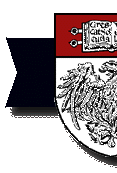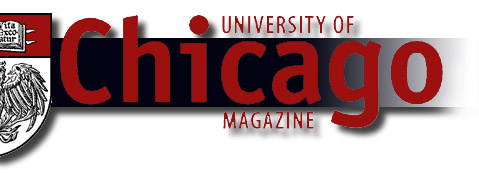 |

Which is
less U of C—“joy” or “unconfirmed”?

To
quote Percy Bysshe Shelley, “If winter comes, can spring be
far behind?” The line is from “Ode to the West Wind,”
as many of you know off the top of your head. And, as two readers
called and wrote to point out, neither Shelley nor his fellow Romantic
poet Lord Byron penned these not-so-immortal lines: “On with
the dance! Let joy be unconfirmed….” What Byron actually
wrote, in Childe Harold’s Pilgrimage, was: “On with the
dance! Let joy be unconfined….” Byron’s words are
much more in keeping with the mood of the Chicago Swing Dance
Society. Though the poet’s phrase is inarguably more felicitous—not
an inconsiderable consideration when one is writing about joy—I’ve
developed a fondness for the accidental quotation. After all—and
this may have something to do with the first sightings of robins
and crocuses—“unconfirmed” joy seems almost as all-embracing
as joy of the unconfined variety. Both offer the hope of spring.
Confirming Beliefs: If Freud is right and there are no slips of
the tongue, should I blame incipient spring for the Byronic mistake?
Or was “unconfirmed” on my mind for other reasons?
“Unconfirmed” is definitely a word heard at the University
of Chicago. It’s a dagger thrust to the heart of an intellectual
opponent’s arguments, a hurdle that brings the hell-for-leather
rider up short. “Vat is the evidence?” biology professor
Anton J. Carlson used to badger his students and his colleagues
alike. Where, in other words, is the confirmation? What are the
facts?
In this respect, “unconfirmed” is a much more un–University
of Chicago word than “joy”—a noun that’s a friend
of a friend of what some locals refer to as the F-word: “fun.”
Calling for the facts, like consulting the primary sources, doesn’t
necessarily mean unanimity of opinion or interpretation. It would
be nice if it did. And easier, too.
If you have been following media and alumni reactions to the news
(or, rather, to the re-release of the news) about the University’s
plans to expand undergraduate enrollment and the College faculty’s
revision of the undergraduate curriculum, you know that both (all?)
sides have strong and compelling arguments (a sampling of those
arguments is given on pages 14–19).
While frank and open discussion has always been a hallmark of the
University’s academic life, it is sometimes accompanied by
a reluctance to carry those arguments outside. In a way, it reminds
me of my mother’s admonitions—not against family arguments
(with five children, the woman, born a pacifist, had long since
become a realist)—but rather against conducting family arguments
in public. The idea seems to be that “outsiders” won’t
understand just how loyal to the institution the loyal opposition
really is.
The issues facing the University aren’t easy ones. Again, it
would be nice if they were. But not very University of Chicago.
Are some alumni more equal than others? That’s the question
raised by Marianne Bell, AB’70, of DeForest, Wisconsin. Bell
wrote to express her dismay with a feature introduced last spring
in the Magazine’s “Class News” section: “Class
High Notes,” a selection of excerpts from the issue’s
alumni news reports.
Previously,” Bell noted, “an announcement of something
expected and ordinary, like a retirement, ranked right along with
a Nobel Prize. Here equality is sacrificed for a value judgment
of what you have decided is highly important.”
Perhaps it’s time we renamed the feature, because we began
the excerpts for precisely the opposite reason—as a way of
enticing readers to read beyond the class notes for their own particular
years at Chicago and to see the range of interesting alumni from
every era. All class notes are equal.
Credit where credit is due: In “All the World’s a School”
(February/99 College Report), we neglected to note that Miao Wang,
’99, took the photograph of the protest in Barcelona. Also
in the College Report, we should have reported that Mira Lutgendorf,
’99, one of this year’s Rhodes scholars, is a general
studies in the humanities concentrator and an aspiring, but not
yet published, novelist.—M.R.Y.
|



